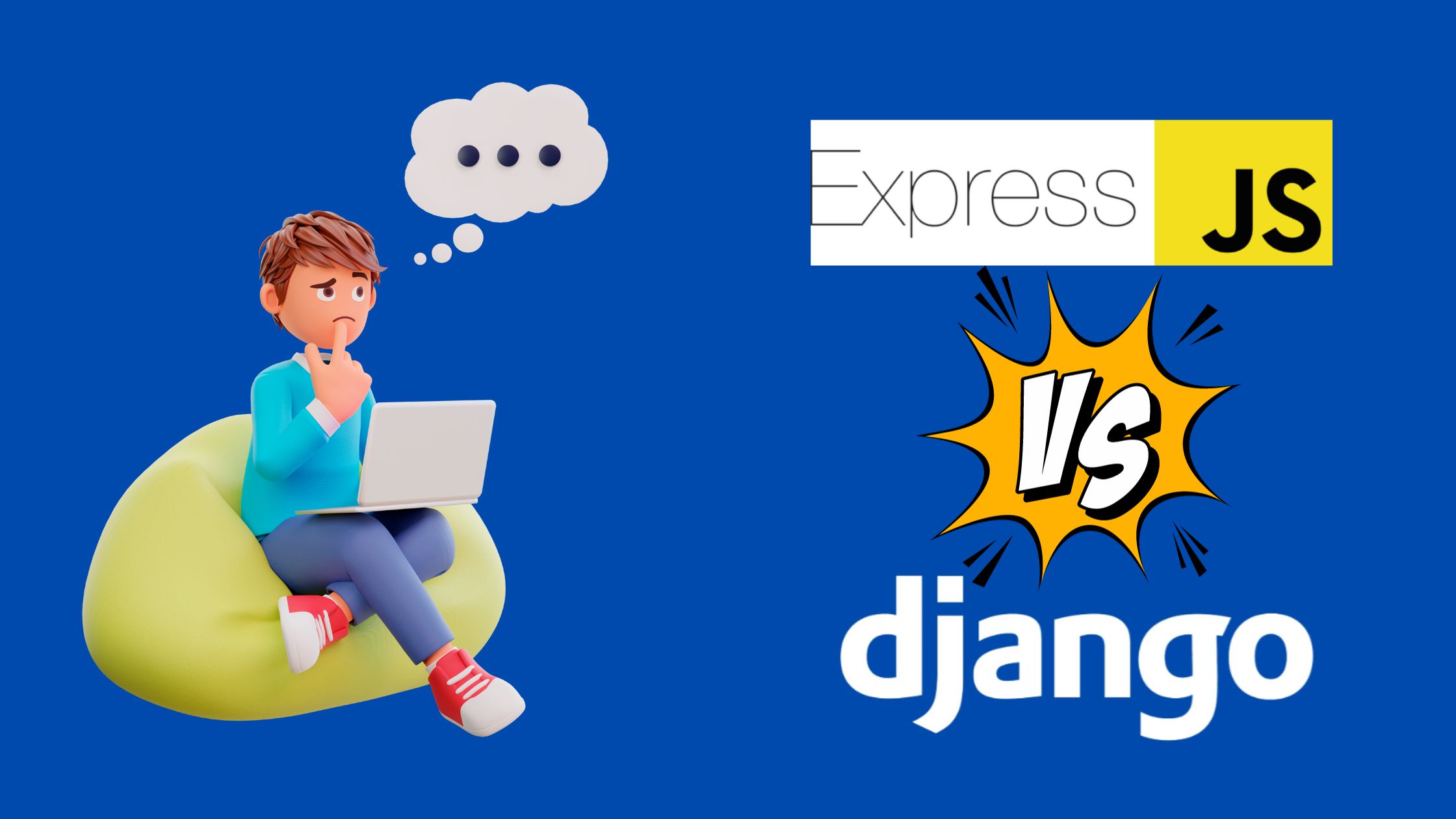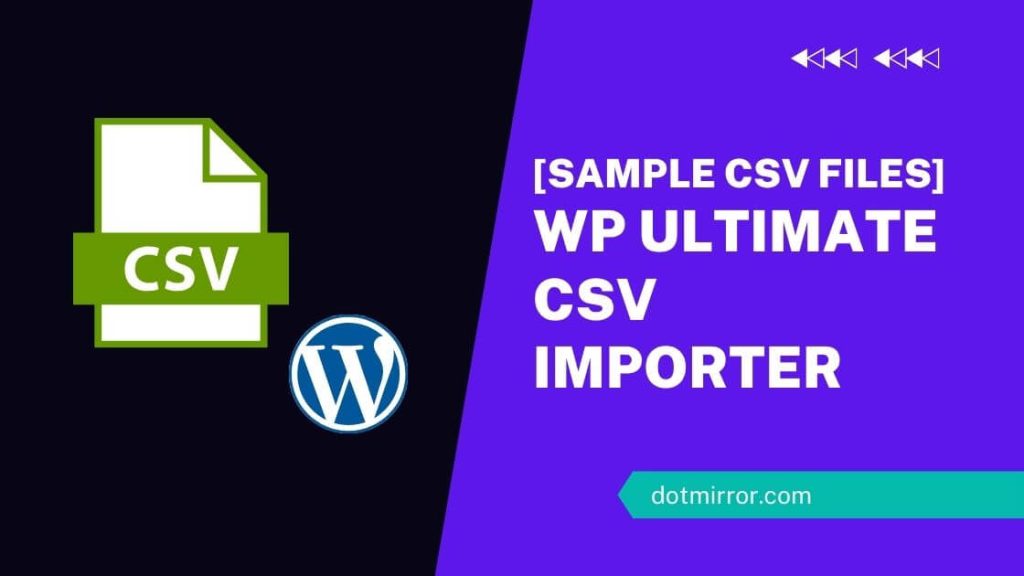However, at present, Django and Express.js are the two of the top-ranked backend technologies. Django is easy to administer, and Express.js is easy to set up and run. So both are popular frameworks among the huge user community.
Since you need to pick the right tools, keep reading our article on Django vs Express. Here we’ll discuss both key features, pros, and cons, plus the best using areas.
Django vs Express: Speed, Performance, and Use Case
- Speed of Development:
- Django follows the “batteries-included” philosophy, providing many built-in features, which can speed up development.
- Express is more minimalistic, allowing developers more flexibility but requiring additional libraries for certain functionalities.
- Performance:
- Both Django and Express can be performant, but the specific performance depends on factors like server configuration, database optimization, and code implementation.
- Django is known for its robustness and can handle large-scale applications well.
- Use Case:
- Django is often preferred for projects where a more structured framework is beneficial, such as content-heavy websites or applications with complex databases.
- Express is popular for building RESTful APIs and single-page applications, especially in the Node.js ecosystem.
What is Django?
Django is a free and open-source framework written in the Python programming language. It offers rapid development, with organized code and clean programmatic design. On top, Django is a popular choice for any large-scale enterprise application development.
Django is used by many famous companies such as NASA and L’oreal men experts. The main goal of Django is to allow developers to spend quality time on new components rather than the existing developed components.
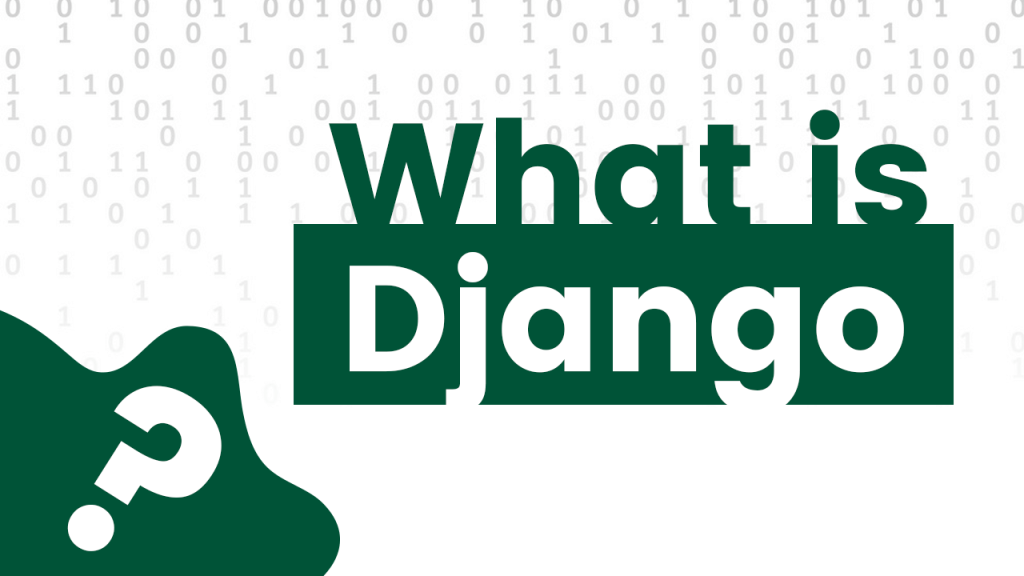
Key Features
- Advanced data validation
- Supports a large number of third-party applications
- Custom User Permission
- Rapid Prototyping
- Versatility in nature
- SEO optimized
- Vast and Supportive community
What is Express?
Express is a backend Node.js web application framework that provides a robust set of features to build single-page, multi-page, and hybrid web applications and API’s. Besides, it’s written in JavaScript, which incredibly makes backend web apps and websites.
It facilitates the active development of Node.js-based web applications. FOX sports, Uber, PayPal, and many more popular companies use the Express framework.
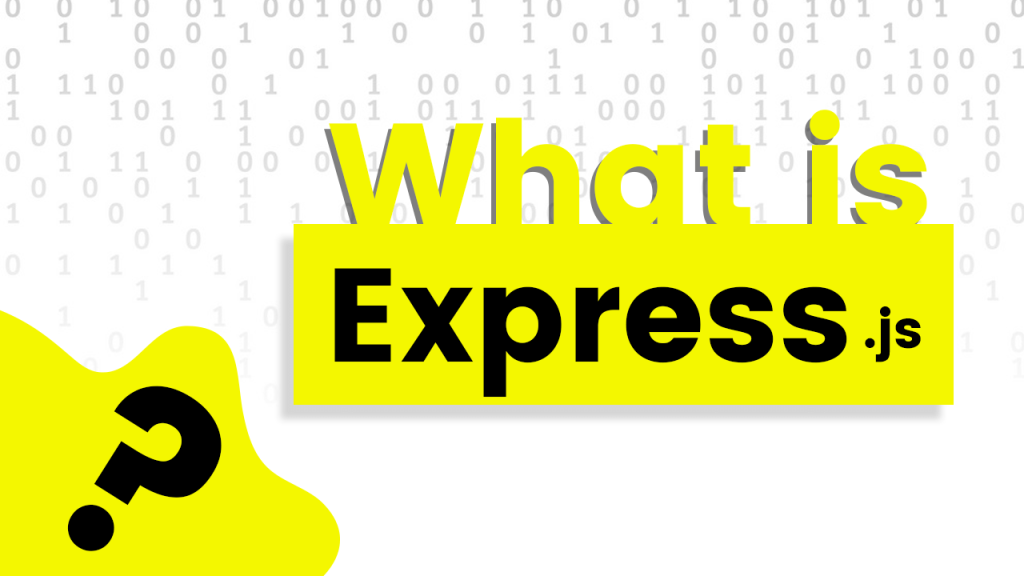
Key Features
- Faster server-side development
- Templating engines
- Highly advanced routing
- Supports Middleware
- Debugging mechanism
- Compatible with all types of operating systems used in Nodejs
Key Differences Between Express vs. Django
Let’s make a comparison of Express JS vs. Django and find out their fundamental differences.
Framework
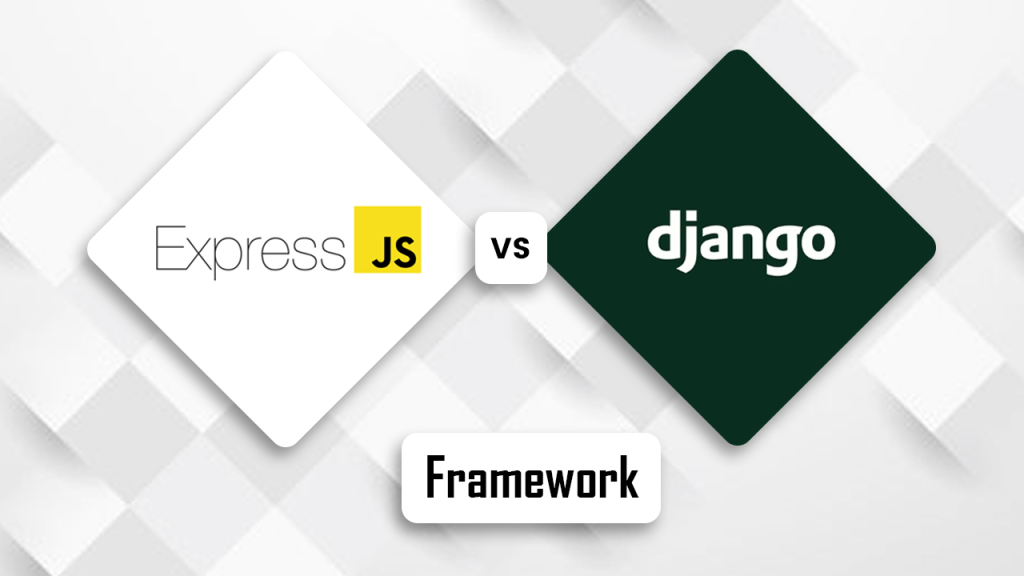
-
Django
Django is a much more mature framework in this industry. It’s a Python-based framework specially designed for proficient developers who want to develop applications in a specific time frame.
-
Express
In contrast, Express is the modern, assertive and fast framework of Node.js. Express is like a layer developed ahead of Node.js and helps in administering routes and servers greatly.
Winner – Django.
Architecture
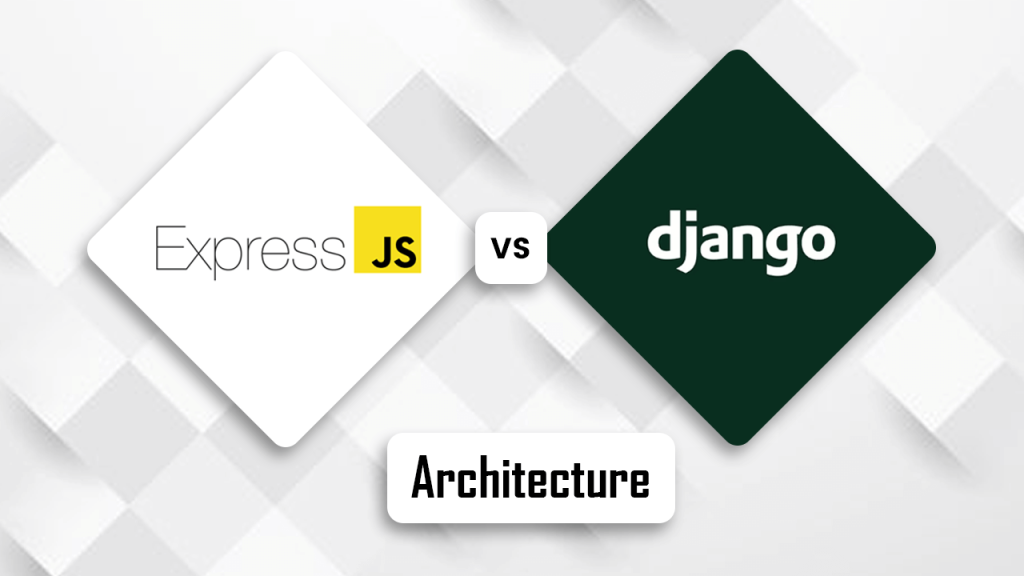
-
Django
Django supports MTV model view template design. It is a clear design pattern for developing web applications. Furthermore with MTV, the framework itself takes care of the controller part, and the developers do not need to write code.
-
Express
It has built-in MVC architecture. That means you’ve to write all the control-specific codes and can support parallel development.
Winner- Django
Efficiency
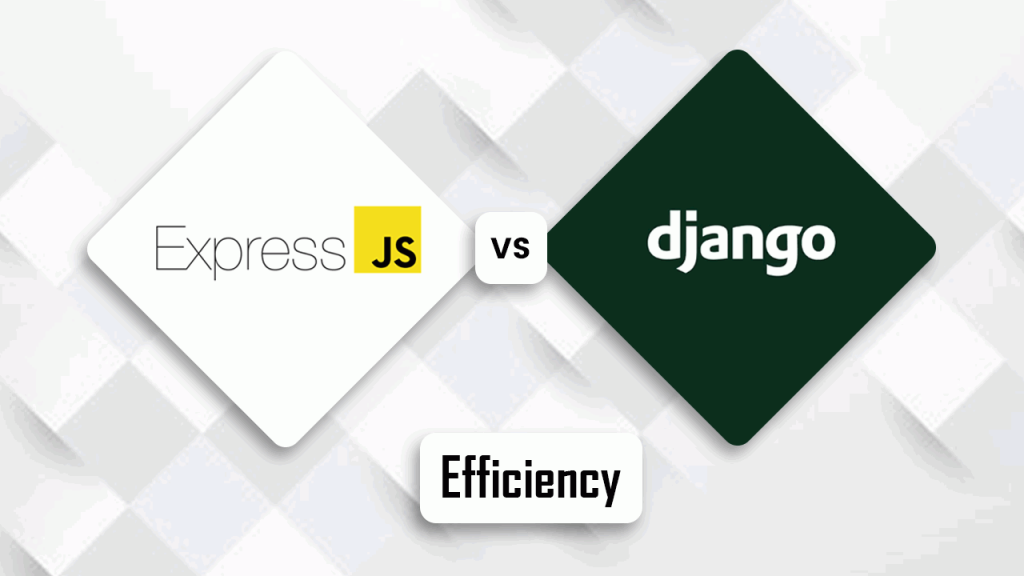
-
Django
It provides fast and efficient speed of development. It’s the popular backend framework for perfectionists with deadlines.
-
Express
At the same time, Express provides rapid development of web applications on NodeJS.
Winner –Django
Complexity
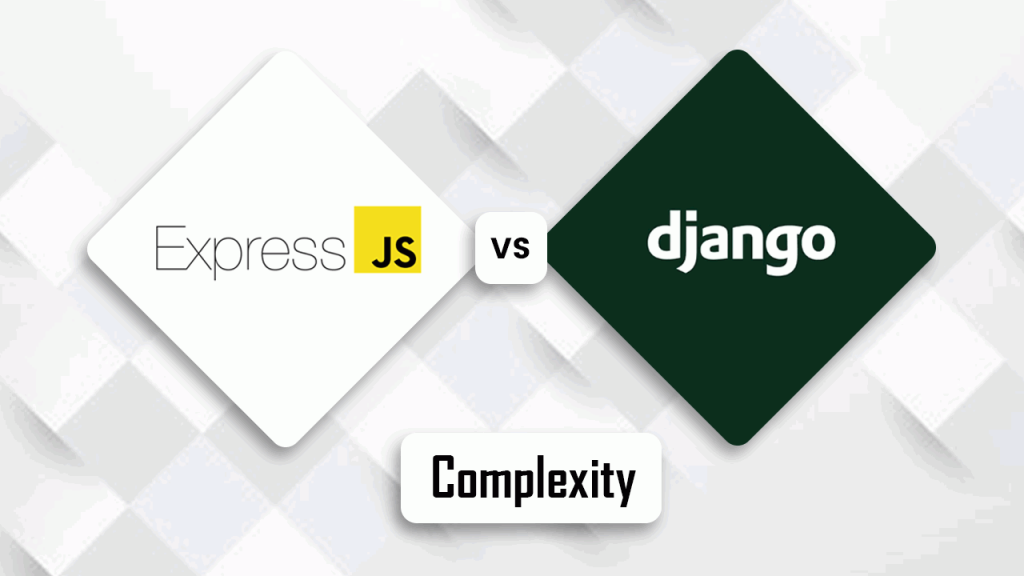
-
Django
Django is best for experienced developers who already worked with Python. So it seems to be a complex and profound learning curve for beginner developers.
-
Express
Express is comparatively less complex than Django. It’s easy to use and learn for all developers including those new to javascript.
Winner – Express
Flexibility
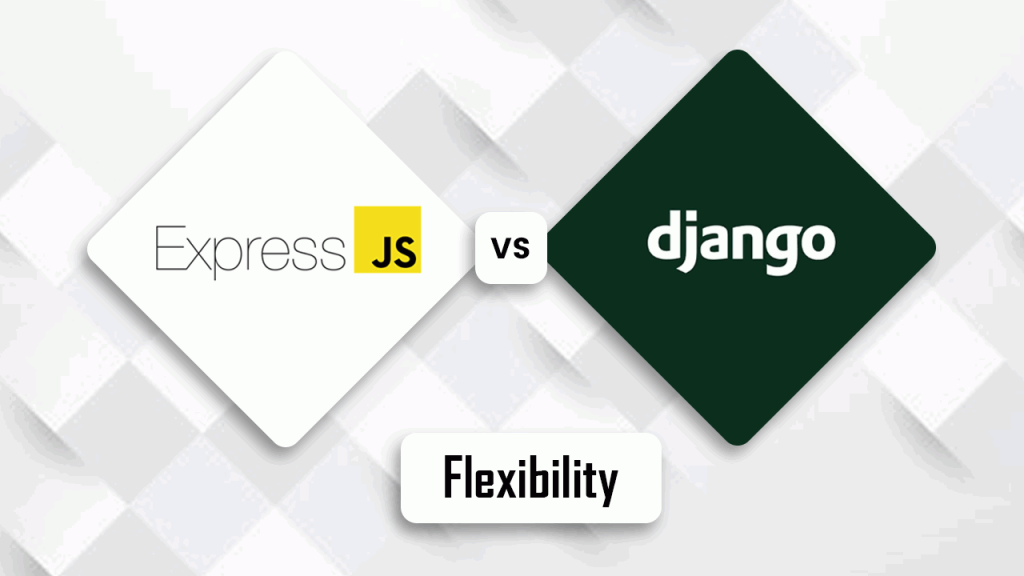
-
Django
Django is mainly used for large projects; hence, it has some strict codes and software development traits. That means you will find less flexibility in Django.
-
Express
But Express is a more flexible and minimal development framework on Nodejs.
Winner – Express
Full-Stack Development
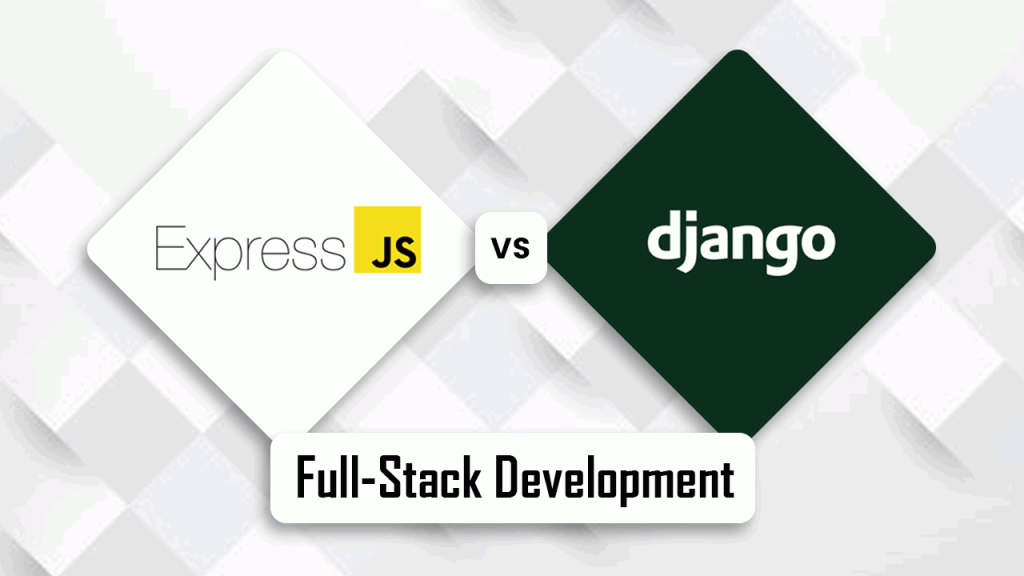
-
Django
Django provides full-stack development, a category of the tech stack. So it can work on both backend and frontend systems.
-
Express
On the other hand, Express is a component of the MEAN stack. Its popular backend framework works for Back-end systems.
Winner – Django
Is Django Good for Back-end?
The frontend is called client-side, while backend means server-side rendered web framework. Django allows the developers to build high-quality web applications in both frontend and backend systems. That means it’s suitable for Backend web applications.
If you don’t have experience with Django, you might avoid this. Still, if you are already experienced in Python, Django mostly suits you in making an organization’s backend. On top-notch, when you’re giving importance to stability and maturity, then Django is ahead of any other backend framework.
By and large, if you know where and how you should implement it, then Django can be your good choice to build a backend application.
When Would You Use Django vs. Express?
We discover the specific uses of Express vs. Django so that you could know when to use one.
When would you use Django?
Django has some beneficial features and intensive extensions that you might want to add to your upcoming project. Here are some top uses of Django.
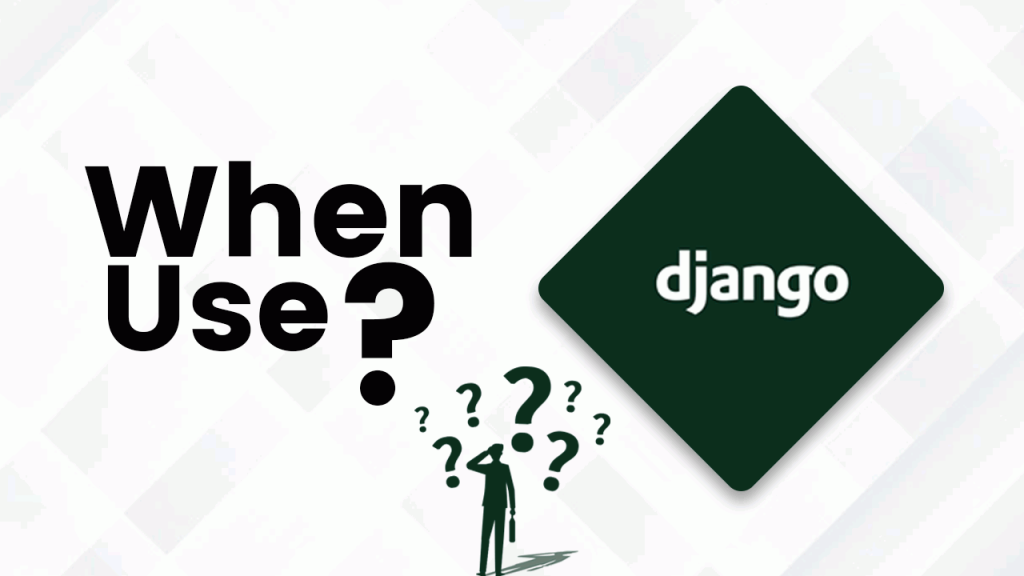
-
Create Web Apps with Less Codes
Django is a highly structured framework with a “batteries included” approach. So if the developers want to build robust web applications with a minimal amount of code, the Django framework is the best choice.
-
To Build Applications Require to Scale Up in Future
Scalability is another key benefit of using Django. Django is a series of Python components that are always ready to use and scale up at any point in time. Otherwise, it includes multiple small pluggable applications.
-
Web Applications with ORM Support
When you need ORM support to build apps and don’t want to work with database queries directly, use the Django app framework.
-
Customizable Application
Django is an excellent choice for developers who want to build customizable applications such as social media websites. In addition, you have total freedom to utilize libraries and plugins to customize your apps.
-
Web applications with ML integration
You might want to integrate cutting-edge tech in your web apps. Thankfully, Django includes Machine Learning which is an excellent method of data analysis.
When Would You Use Express.js?
You can use Express.js for the following requirements and when you find Django doesn’t match your project.

-
To Develop REST API and Web applications.
Express is free software, and it is released under an MIT license. Whether you want to develop REST API, then go for Express.
-
Small-scale projects
Express is an excellent framework for small-scale projects and simple web applications.
-
When Requires Runtime Environment
When your project requires a runtime environment, you will use Express js because it integrates with Node, single-threaded, asynchronous programming, and event-driven programming.
-
To have Supported for Several Plugins
If you need to distribute and install multiple plugins in the web development project, you might take advantage of Express. It facilitates Node Package manager to support third-party plugins.
-
Save Time
If you want to save your time writing codes and managing all the development functions, it’s better to use Express.
Pros and Cons of Using Django
Let’s take a quick look at the pros and cons of using Django.
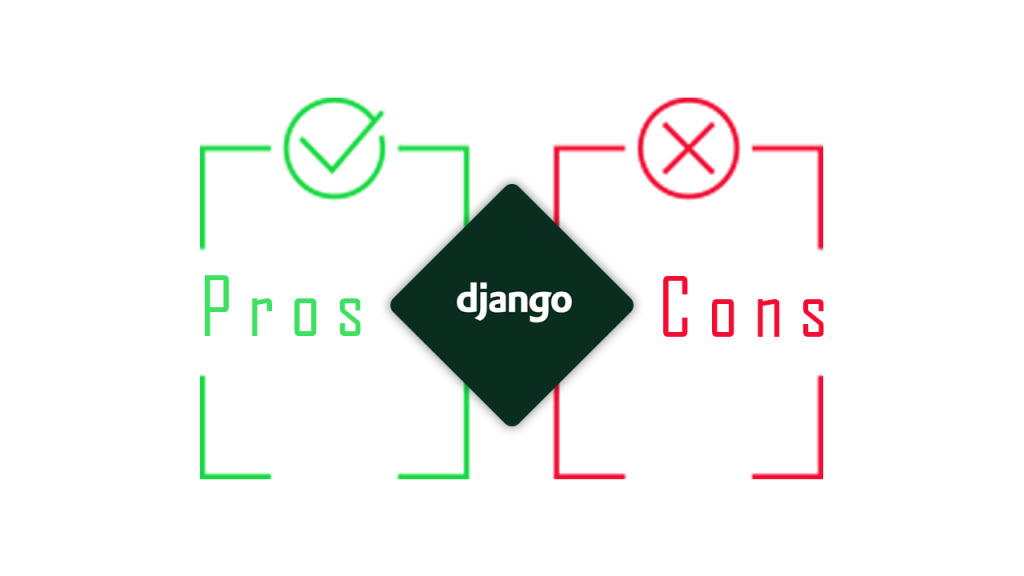
Pros
- High security less the chances of being hacked.
- Multi-language support without extensions
- Easy to modify content management workflow
- Create big projects without any limitations and restrictions.
- Easily add features to the Django application and Woo-commerce.
- Active communities to fast-track speed development process.
- Create any extensions with frontend functionalities.
Cons
- Not suitable for small projects.
- Django can handle one request at a time.
- Slow evolution as it considered to be monolithic
- Expensively developing and maintaining websites with Django.
Pros and Cons of Using Express.js
Here are the exclusive pros and cons of using Express.
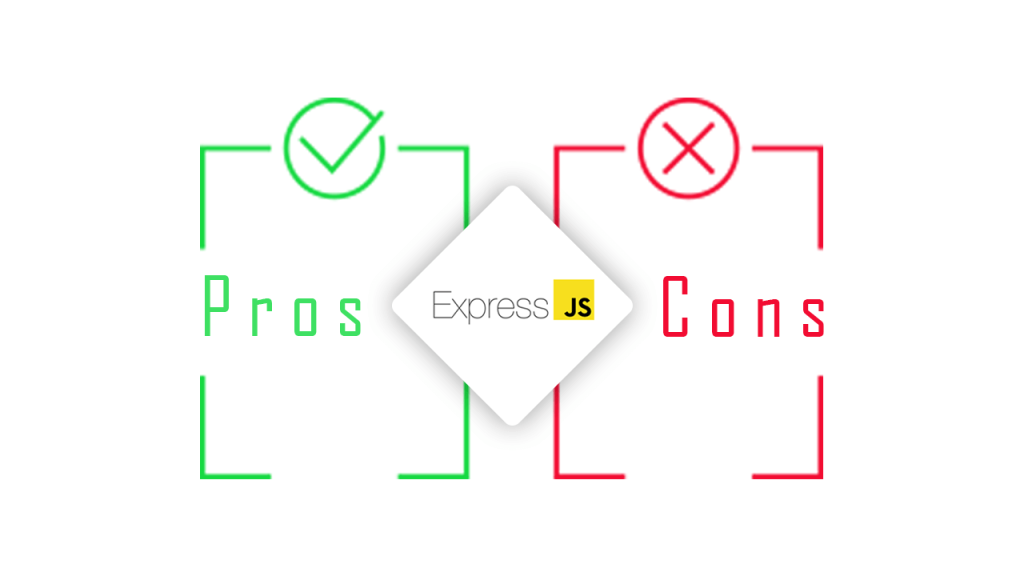
Pros
- Easy configuration and customization facility
- With Express.js, developers can connect with MongoDB, MySQL, and Redis databases.
- Efficiently serve resources and static files to your web applications
- Helps to identify an error-handling middleware
- Less cost to develop and maintain web applications.
- Support catching prevents re-execute codes repeatedly.
- Supports I/Q request handling facility incredibly handles requests.
Cons
- Several issues in the callbacks
- While doing multi-computing tasks, Express reduces its performance.
- Hard to maintain codes for Asynchronous programming models.
Django or Express – Which One is to Pick?
Django and Express are both free and open-source frameworks offering the developers massive features and functionalities. Basically, there is no specific answer about which is better. It only depends on your requirements and uses.
If you’re familiar with Python and Javascript languages, you can use Express.js to build real-time applications and maintain them with Django’s excellent functionalities.
However, you can pick Express if you want to build apps requiring intense data processing like game apps, social networking sites, or live streaming apps.
Otherwise, pick Django for rapid development in both backend and frontend. Also, to build full-stack apps, highly scalable apps.
Last Few Words
After reading the discussion about Django vs. Express, you must get a clear concept about both frameworks. Now just compare their features, pros, and cons to find the most suitable one. Hopefully, you can pick the best as the need of your project.

